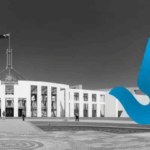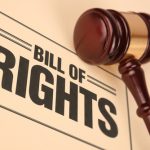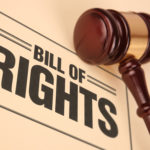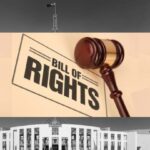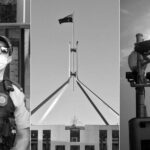The Stage Is Set for a Federal Human Rights Act: But Does Albanese Have the Fortitude?

Parliamentary Joint Committee on Human Rights chair Labor MP Josh Burns announced in the lower house on 30 May 2024 that the Albanese government-launched inquiry into Australia’s human rights framework has recommended, first and foremost, the adoption of a national Human Rights Act.
Legal and rights groups nationwide expelled a collective sigh of relief on hearing the news, and then those who were around back in 2009 had a sharp sense of déjà vu, as they recalled that a Rudd Labor government-commissioned inquiry made the same recommendation back then.
But times have changed. The constituency is now aware that there is a dearth of rights protections at the federal level, as the fallout from the impact of the COVID pandemic amplified this. And those who used to assume the rights discussed in US TV shows are simply reflected here, no longer do.
This time round has also seen the Australian Human Rights Commission produce a comprehensive March 2023 report recommending the nation establish a dialogue model HRA prior to the inquiry, which the committee endorses as its favoured version for such a bill as its second recommendation.
Independent MP Andrew Wilkie and the Greens have long called for rights protections to be enshrined in federal law. And with Labor appearing serious this time, and crossbench support in parliament negating any need for the Coalition to get on board, the time is now ripe for a HRA.
A gaping hole in our democracy
“Australia is the only western liberal democracy without some form of federal charter of human rights,” explained Australian Lawyers for Human Rights (ALHR) president Kerry Weste, whose organisation has been campaigning for a HRA for the last three decades.
“This recommendation affirms that it is long past time to walk the talk on the international human rights obligations we have promised to uphold.”
Australia has ratified all seven of the major human rights treaties, and after Howard denied the UN declaration on Indigenous rights, Labor supported it two years later. But while our nation has agreed to uphold the rights outlined in these documents at the global level, it hasn’t done so domestically.
The AHRC and the Human Rights committee both recommend these rights are enacted into domestic law, so they’re protected for all citizens and residents. And the reason for the reluctance in legislating rights protections for the people is that it limits the powers of government and ministers.
As Burns explains in the forward to the report, a HRA would ensure lawmakers consider human rights when drafting laws, federal authorities, including government and law enforcement, would be barred from breaching these rights, and if one’s rights were infringed, there would be legal recourse.
“When governments legally protect and articulate human rights the quality of decision-making is improved and people are empowered to understand and stand up for their rights,” Weste made clear in her 30 May statement. “This is what a modern democracy looks like.”
Human Rights Act 2024 (Cth)
The AHRC’s Free and Equal report calls for a dialogue model of HRA, which provides that there’s a formal exchange between the three branches of government – the executive, the legislature and the judiciary – as they all work together to uphold rights.
The legislature, or parliament, would draft and enact human rights into domestic law. The executive, the ministers, would enforce these rights and act in accordance with them. And the judiciary, judges and magistrates, would interpret laws through a rights lens, and review them to ensure compliance.
The report recommends a HRA that incorporates rights from the International Covenant on Civil and Political Rights (ICCPR) and the International Covenant on Economic, Social and Cultural Rights (ICESCR).
As for specific rights, the report notes those indicated by the AHRC, which include the right to equality, non-discrimination, to life, to privacy, freedom of movement, to liberty, to a fair hearing, freedom from slavery, cultural rights, to education, to health and to an adequate standard of living.
The Human Rights committee further recommends that in terms of seeking legal recourse over a rights dispute, parties would be able to deal with the matter through a conciliation process with a body like the AHRC, or otherwise, would be able to raise the issue directly with the Federal Court.
Avoiding power-eroding rights
In 2008, the Rudd government-commissioned an inquiry chaired by Father Frank Brennan to investigate whether Australian human rights are adequately protected. And whilst it wasn’t its central recommendation, the 2009 report did call for the enactment of a federal HRA.
Federal Labor then chose not to draft a HRA due to concerns about its possible consequences, and as the report noted, one of the main reasons raised against producing a federal HRA was that it was unnecessary as Australians’ rights were already protected in various ways, including existing laws.
So, instead of legislating for a HRA that the Coalition didn’t want either, the Rudd government produced the Australian Human Rights Framework, which involved reaffirming, educating, engaging, protecting and respecting, but no legislating human rights protections in law.
And in 2012, Labor launched the National Human Rights Action Plan, which included the government contemplating ratifying more international rights treaties, reviewing the rights treaties it had already ratified and maintaining a database with UN rights treaties on it.
Needless to say, none of this resulted in the establishment of rights protections at the federal level, and as nothing was actually established under law, when the Abbott government got in, they tossed it all out, along with measures to address climate that Labor had been progressing.
For the people
“A Human Rights Act will create an essential framework that enables everyone involved in the work of government to engage in a positive, collective effort to realise greater freedom, dignity and equality for all of us,” Weste made clear.
“We know that Human Rights Acts work,” the lawyer continued. “Similar legislation operating in Victoria, Queensland and the Australian Capital Territory has – for decades – been delivering concrete benefits in people’s everyday lives in areas, such as housing, education and healthcare.”
Former High Court Justice Michael Kirby outlined in a 1994 article, that those drafting the Australian Constitution in the 1890s had contemplated embedding a bill of rights in the founding document, which is the model operating in the United States, however they decided not to include one.
Kirby explained that there were concerns that a bill of rights would undermine some of the “discriminatory provisions of the law of that time”, especially those that “disadvantaged Aboriginal people and the Chinese in Australia”.
And with Labor’s last effort to convince the nation it was serious about protecting voters’ rights being a shambles, one can only speculate why the resistance to these basic democratic protections remains today.
Of course, federal Labor can put such cynicism to bed with laws that do improve the lives of the entire Australian constituency.
“ALHR calls on the Albanese government to accept and implement the report’s central recommendation by committing to the introduction of a federal Human Rights Act and putting forward a draft exposure bill for communitywide consultation,” Weste said in conclusion.


